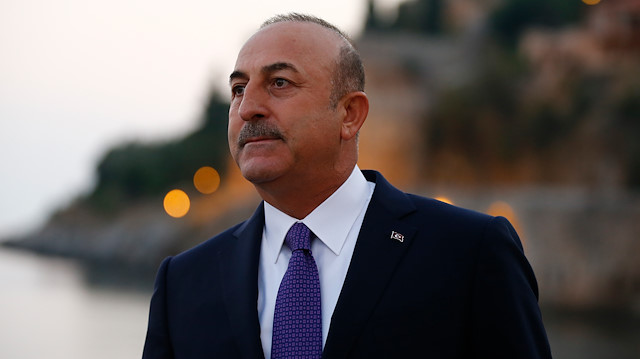

Turkish Foreign Minister Mevlut Çavuşoğlu
Extradition files sent as part of efforts to fight terrorist group's overseas presence, says Turkish foreign minister
Turkey has sent dozens of countries extradition files on over 450 suspected members of the terrorist group behind the 2016 defeated coup, said Turkey’s foreign minister on Wednesday.
"We continue to pursue a resolute fight with FETÖ both at home and abroad,” Mevlüt Çavuşoğlu told parliament’s Planning and Budget Commission, referring to the Fetullah Terrorist Organization or FETÖ.
“We are pursuing FETÖ terrorists wherever they are in the world. We will bring the FETÖ members to Turkish justice to hold them accountable."
He added: "We prepared files on 452 FETÖ-linked figures as part of investigations of senior members of the terror group's overseas presence. We sent files to 83 countries where these figures are living."
Çavuşoğlu said that with the cooperation of 21 countries, a total of 104 FETÖ members have been extradited to Turkey to date.
On Turkey's successful cross-border counter-terrorism operations, Çavuşoğlu said that over 260,000 refugees had returned to areas of Syria cleared of terrorists during Turkey’s operations.
Turkish troops -- backed by the FSA -- liberated large swathes of northwestern Syria from terrorist groups during Operation Euphrates Shield in 2016-2017, while Operation Olive Branch liberated Afrin, Syria from YPG/PKK and Daesh terrorists in early 2018.
Turkey has also succeeded in closing FETÖ-linked schools abroad, he said.
"FETÖ schools and language schools have been closed in 21 countries," said Çavuşoğlu, adding that Turkey's Maarif Foundation has assumed administration of the schools in 16 countries.
FETÖ and its U.S.-based leader Fetullah Gulen orchestrated the defeated coup of July 15, 2016, which left 251 people martyred and nearly 2,200 injured.
Ankara also accuses FETÖ of being behind a long-running campaign to overthrow the state through the infiltration of Turkish institutions, particularly the security forces, judiciary, and schools.
FETÖ also has a considerable presence outside Turkey, including private educational institutions that serve as a revenue stream for the terrorist group.
Çavuşoğlu said Turkey is trying to minimize the effect of sanctions imposed on Iran.
"[For this] We are in close coordination notably with both the U.S. and EU, and even with Asian countries," he said.
The U.S. administration announced Friday, Nov. 2 that it would temporarily allow eight importers to continue trading oil with Iran.
Çavuşoğlu also hailed Turkey-Russia relations, saying: "There is a strong will and a close dialogue between our leaders. We can find a way out even in hard times."
He also spoke about Turkey’s cooperation with the Central Asian countries. "Our relations with Uzbekistan has revived with the new administration [in the country]. Our relations with Turkmenistan have also strengthened," he added.
Turkey making efforts to get U.S. Congress to remove bills against Ankara
Turkey is making efforts to get the U.S. Congress to drop bills targeting Ankara, according to the text of Çavuşoğlu on Wednesday.
The U.S. Senate has demanded a block on sales of F-35 jets to Turkey unless U.S. President Donald Trump certifies that Turkey is not threatening NATO, purchasing defence equipment from Russia or detaining U.S. citizens.
Çavuşoğlu also said in the text of his speech, which he is delivering to a parliamentary commission on Wednesday, that Turkey is working to keep economic ties with the United States from being impacted by political issues.
#Mevlüt Çavuşoğlu
#Turkey
#US
#Germany
#FETÖ




